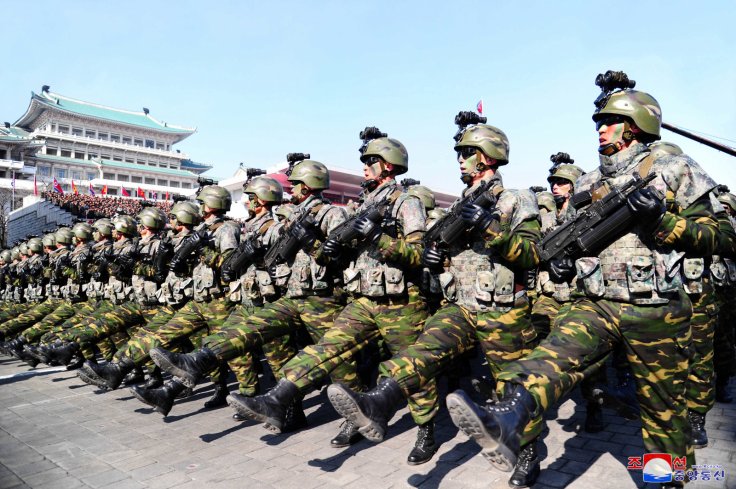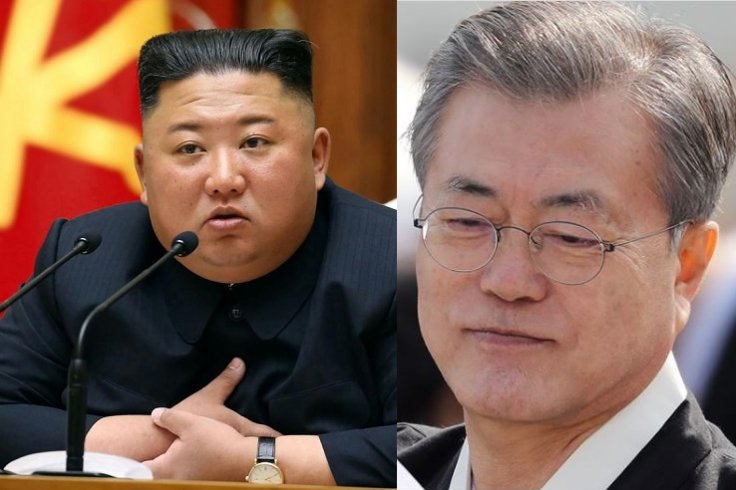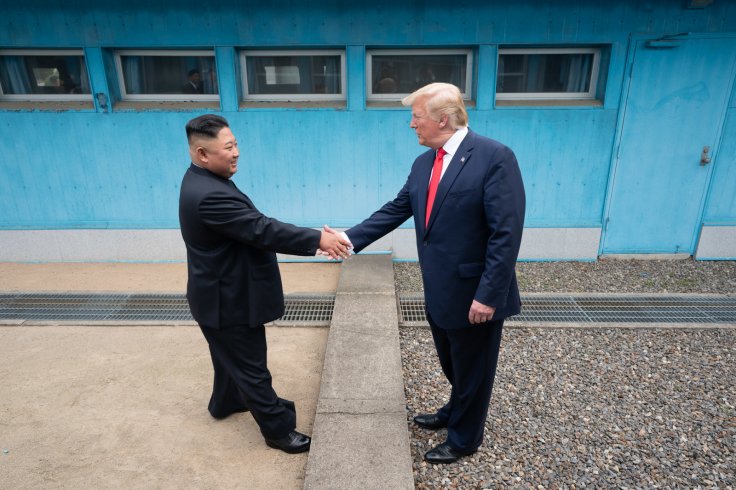North Korea's supreme leader Kim Jong Un shaking hands with United States' President Donald Trump at the Korean demilitarized zone (DMZ) in 2019 had made many believe that the long-standing tensions between two Koreas would be over soon.
But a year later, it turned out to be just a "photo-op" as former U.S. National Security advisor John Bolton claimed. North Korea has reinvigorated its hostility issuing threats to South Korea at a time when the U.S. has been distracted by a trade war with China. After months of silence on the matter of U.S., on June 22, North Korean embassy in Moscow sent a statement to TASS News Agency and threatened America of "sensational event" that would destroy the country.

String of Threats
The statement to TASS comes in the backdrop of renewed hostilities between North and South Korea. While the "Pyongyang Joint Declaration of September 2018" seemed to have eased the long-standing tensions between two Koreas, Trump's refusal to lift "all economic sanctions" on North in exchange for denuclearization meant the 2019 Vietnam Summit, which was designed to begin a healthy relationship in the Korean peninsula failed to bear any fruit.
In addition, Pyongyang left frustrated with Seoul's inability to curb the human rights activist groups, which helallies and sent propaganda and food items through hot-air balloons to North Korea. South Korea President Moon Jae In, who had said that legal action against the defectors would be taken, could not prevent the rallies.
These gesture have made Pyongyang's impatient leaders furious and Kim Yo Jong — Kim Jong Un's sister tasked to deal with South Korea — vowed to take military action, if necessary. Last week, the North Korean army blew up a joint liaison office with South in Kaesong that was built by South Korea.
Pyongyang has since refused any talks with Seoul and reposted guards at the DMZ guard-posts. Kim Yo has also asked the army to be ready. "By exercising my power authorized by the Supreme Leader, our Party and the state, I have an instruction to the department in charge of the affairs with the enemy to decisively carry out the next action," she said.

Denuclearization Was a Sham
The agreement in 2018 meant North Korea had to destroy its nuclear arsenal and close its Punggye-ri Nuclear Test Site. While Kim Jong Un and his ministers expressed their desire to do so and destroyed the tunnels of the site in the presence of journalists, they never had any UN inspections. It was duly reported that North had begun dismantling the nuclear missiles.
When the 2019 Vietnam Summit fell through, North continued to build its nuclear arsenals and secretly built its naval base. Experts in and out of Washington believe that North has enough fuel to make 20 nuclear warheads.
North's reluctance in denuclearization was evident in a statement issued in 2017. "It is self-evident that the DPRK (North Korea) can never stop bolstering up the nuclear deterrent under the grave situation in which no one can guess when a nuclear war may break out due to the U.S. seeking to stifle the DPRK by nukes," it read.

Bolton's Photo-op Claim
While Trump didn't give a timeline to Pyongyang to dismantle its nuclear arsenal, North Korea waited for the U.S. to budge on sanctions. But Trump's meeting with Kim Jong at the DMZ also bolstered Pyongyang's confidence. As both parties remained defiant on not agreeing to come to terms, the peace agreement never came to fruition. Instead, White House renewed the sanctions and Pyongyang continued testing new missiles, deteriorating the situation in the Korean peninsula rapidly.
Bolton in his book of a tell-all memoir of his time at the White House slammed Trump's decision of Trump's meeting with Kim Jong Un at the DMZ before North Korea had taken any substantial steps to keep its promise. He claimed that Trump just wanted to have a photo-op.
"So if he (Trump) thought he could get a photo opportunity with Kim Jong Un in the demilitarized zone in Korea, there was considerable emphasis on the photo opportunity and the press reaction to it and little or no focus on what such meetings did for the bargaining position of the United States," Bolton said.
South Korea, however, claimed Bolton's record was 'distorted'. Its national security adviser, Chung Eui-yong, said, "It does not reflect accurate facts and substantially distorts facts. Unilaterally publishing consultations made based on mutual trust violates the basic principles of diplomacy and could severely damage future negotiations," he said in a statement.
Read more









